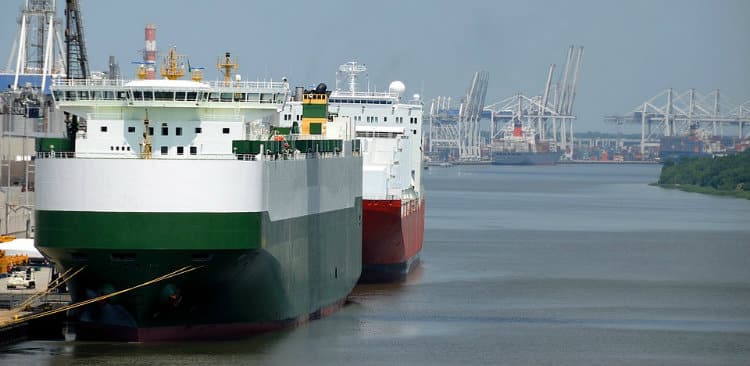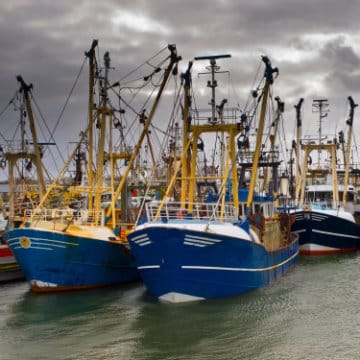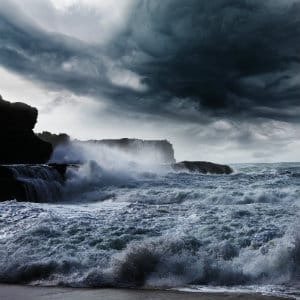Are you unsure of your rights after suffering a maritime work injury? You may be looking for answers to questions like:
Our experienced maritime lawyers can help you explore your options.
Maritime law (AKA admiralty law) is a complex set of legal statutes that governs and regulates legal matters at sea. These laws apply to concerns involving cargo, shipping, maritime worker injuries, passenger personal injuries, transportation of goods and passengers, and vessel accidents and disasters. Any injury that occurs on public navigable waters is covered under maritime law. In the United States, maritime legal matters are handled by federal courts.
Consider contacting our lawyers representing injured offshore workers to learn more.
When a maritime worker gets injured on the job, it’s easy to get confused by the complexities of maritime law. Applicable laws and statutes vary depending on the circumstances of the workers’ employment and their injuries. Unlike most state-level work injury claims, many maritime workers may also have the option to file a a lawsuit against their employer if negligence contributed to their injury. This adds another layer of complexity to maritime injury claims, and it’s often necessary to retain a lawyer with a detailed understanding of maritime law in order to receive the full compensation you’re entitled to.

Any injury which occurs on public navigable waters will be governed by maritime law, including those involving:
Maritime workers who suffer injuries on the job may be eligible for one or more forms of financial compensation. Each case is unique, and applicable forms of compensation will vary based on job title, location of the injury, cause of the injury, and other circumstances. The main forms of financial compensation include:
When a maritime worker gets injured on the job, maintenance and cure benefits are available to provide financial compensation for medical expenses and daily living expenses until the worker can return to his or her job. These benefits will cover essential expenses like rent or mortgages, bills, and food. However, expenses like the internet and even automobile expenses are considered optional under maintenance and care.
These benefits are considered “no-fault”, so any work-related injury is eligible, regardless of how the accident occurred. Injured maritime workers can continue to receive these benefits until their doctor clears them to return to work.
Unlike maintenance and cure benefits, the Jones Act deals with employer liability when a seaman suffers a preventable work injury. To qualify as a seaman under this act, you must spend at least 30% of your work hours aboard a ship.
If an employer fails to maintain a safe work environment and one of their employees gets injured due to a hazardous work condition, that employer may be held liable for damages related to the injury. Compensable damages are similar to what would be available in a personal injury claim, including:
The burden of proof for Jones Act claims is much lower than a traditional personal injury claim. You only need to prove that your employer contributed to your injury in some way, not necessarily that they were the main cause of it.
Examples of employer negligence which could result in a Jones Act claim include:
Ship owners have a duty to keep their vessels safe and free of hazards which could cause a maritime work injury. A vessel is considered seaworthy if all aspects of the ship meet the accepted safety standards of the industry, including:
If a ship owner fails to keep their vessel safe for operation, he or she could be held liable for damages when a maritime worker becomes injured as a result of the unseaworthy condition.
Maritime workers who assist in the loading, unloading, repairing, and construction of ships are eligible for work injury benefits under the Longshore and Harbor Workers’ Compensation Act. This system offers similar benefits as state-level workers’ compensation systems, but claims are handled on the federal level. Any injury, illness, disability, or death which occurs during the course of work duties is eligible for these benefits.
Employees who are covered under the LHWCA include:
The Death on High Seas Act was passed by Congress in 1920 and applies to fatal maritime accidents that occur more than three miles off the coast of US territory. If a maritime worker is killed in an accident caused by a “wrongful act, neglect or default occurring on the high seas beyond a marine league (3 miles) from the shore of any state”, their surviving spouse, children, dependent relatives, or other representative is entitled to file a claim for financial compensation.
A DOSHA claim may provide families with the financial compensation their deceased loved one would have received had they not died. These benefits also provide compensation for loss of care and guidance for the deceased worker’s children. Spouses may also recover compensation for the value of household services that their deceased spouse would have provided.
In order to file a DOSHA claim, you must establish that negligence was the cause of your loved one’s death. For example, if an unseaworthy vessel was the cause of the accident, you could likely hold the vessel owner liable for damages.
If you or a loved one has recently suffered an injury, illness, disability, or death while engaged in maritime work, you may be confused by the complexities of maritime law. This is a highly specialized field of law which usually requires the assistance of a lawyer who has experience in these matters and knowledge of the nuances of the field. Not just any work injury lawyer will do – it’s important to find someone who specializes in this unique and complex field.
To find out more about your legal options, we highly recommend scheduling a consultation with a maritime injury lawyer as soon as possible. A resourceful lawyer can help guide you through the process and secure the financial compensation your family needs.
See Related:


 info@legalherald.com
info@legalherald.com